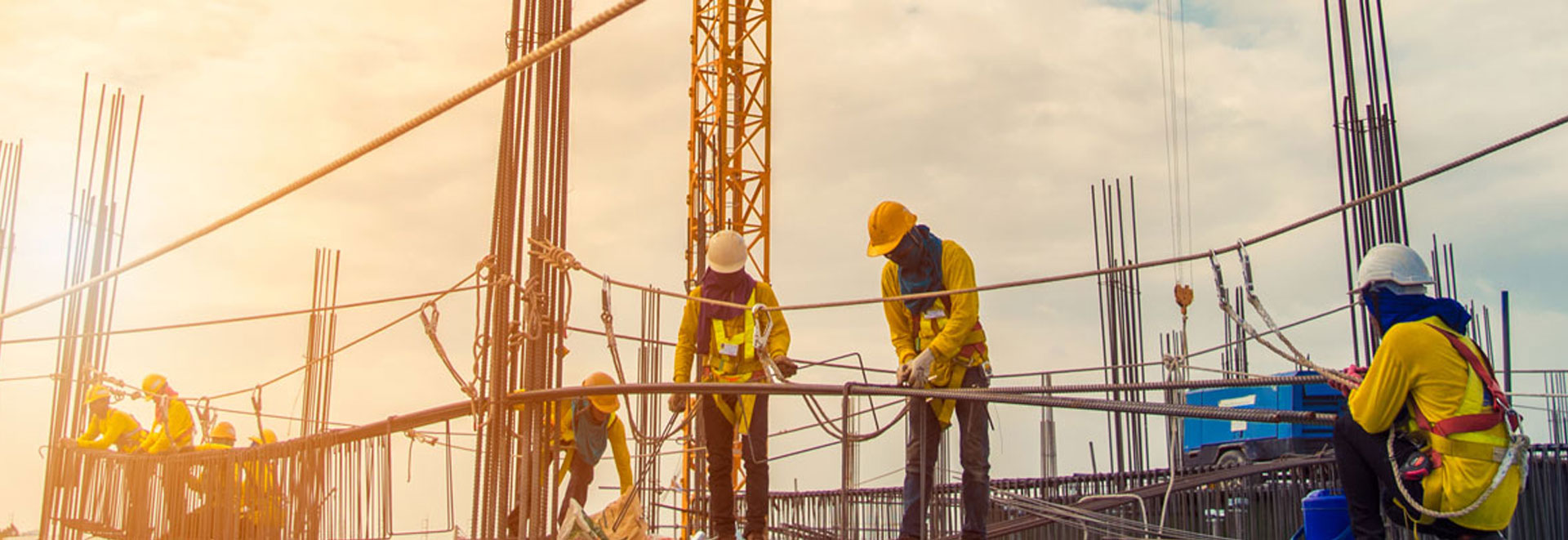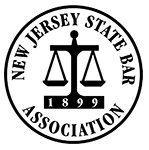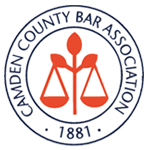New Jersey Workplace Accident Lawyers
Helping Victims Thrive After a Work Accident
A workplace accident can have a profound impact on the victim’s life and that of their family. If an employee, friend, or family member suffers an injury at work, the days and months ahead may seem challenging, confusing, and emotionally draining. Fortunately, those working in New Jersey may be entitled to workers’ compensation benefits.
It also helps to know how to avoid these accidents and how to recover compensation where available. Keep in mind that workers’ compensation is not a guarantee in all circumstances. Additionally, workers have varying rights depending on where they work, the scale of their work, and the terms of their contract. Speak to a New Jersey workplace accident attorney about available options.
What Types of Workplace Accidents Might Occur?
Workplace accidents can happen anywhere, whether on a busy construction site, on the highway, or even in a seemingly safe environment, like an office. Employees need to know how to protect themselves, assess the situation, and come to an understanding of what could occur in the workplace. Common types of workplace accidents include:
Building collapses
The crushing weight of a building collapse can cause a wide range of injuries, such as head injuries, fractures, and internal injuries, many of which can be fatal. Keep in mind that building collapses occur because the structure was built improperly, the structure was not maintained properly, or prior damage was not repaired. Those who survive these accidents may have psychological scars that require counseling, and jobs could be lost if a business no longer has a place to operate.
Construction accidents
Construction sites are among the most common locations for workplace injuries. In many cases, injured construction workers may be entitled to additional compensation through a third-party claim. These accidents occur because of faulty tools, damaged electrical wiring, falling objects, broken scaffolding, inclement weather, or inadequate safety systems. Companies that manufacture tools, vehicles, scaffolding, or safety systems can be subject to a lawsuit because they did not appropriately manufacture or recall those products.
Crane accidents
These types of preventable accidents are frequently caused by a failure to adhere to safety protocols. Cranes operated by licensed professionals are safer, and cranes must be anchored, balanced, and serviced. A rented crane may have been faulty when it arrived on the worksite. Additionally, the crane could damage more than the construction site where it sits. For example, a tower crane can rise to 250 feet. As the crane falls, it can damage other businesses, homes, or injure people not associated with the worksite. A crane operator may be the most severely injured person in the accident. Lawsuits can target the manufacturer for a defective crane, an operator working outside safety protocols, or a business that did not properly set up and install the crane.
Electric Shock
Electrical shock occurs when a person’s body becomes part of an electrical circuit, causing electricity to flow through the body. Depending on the voltage, the length of time the electricity is running through the body, and other factors involving the charge’s path, an electrical shock injury can range from minor burns to cardiac arrest and electrocution.
Electrocutions
Electrocutions are more common on construction sites than most people realize. According to the National Institute of Occupational Safety and Health (NIOSH) division of the Centers for Disease Control and Prevention (CDC), electrocutions account for around 300 deaths and 4,000 injuries in workplaces every year. The construction industry suffers 52 percent of these electrocutions alone. These accidents often involve damaged or fallen power lines. Some workers also use power tools that are not grounded, and visitors might step in puddles conducting electricity from a damaged power cable.
Falls from heights
This type of fall can occur when scaffolding collapses, someone falls off a roof, down a staircase, or off a ladder. Falls from heights may occur even though workers took every available safety precaution because these structures are not maintained properly. Falls must be treated with care by colleagues and anyone else on the scene. Lack of fall protection is by far the most-cited violation in the workplace. Workers should take extra care knowing that they could fall victim to such a common accident.
Call emergency services and do not move the victim unless it is absolutely necessary. These accidents may result in paralysis or even death because a fall from six feet or less could be lethal when landing on the wrong body part or in the wrong place. Not only should companies provide fall protection, but workers should be trained on the proper use of these safety products.
Forklift accidents
This type of accident can result in a wide range of serious injuries for both drivers and bystanders. Forklifts are used throughout the warehouse, distribution, and logistics industries. Workers from all walks of life can obtain forklift certification, but that does not prevent all accidents. Statistics from the United States Bureau of Labor Statistics show that there were around 8,000 forklift injuries in 2018. Forklifts should not be operated by unlicensed drivers. While it is tempting to use a forklift for a simple task with little to no training, injuries can occur at any time. Moreover, training for forklift operators should be renewed every year for safety’s sake.
Heavy equipment accidents
Working with or around heavy equipment can be perilous if proper safety measures are not taken. Heavy equipment includes customized machines for manufacturing, large construction equipment, and industrial cleaning tools. These accidents often occur because the machines were not serviced properly or used correctly. The device might also suffer from defects.
Motor vehicle accidents
Motor vehicle accidents most often occur at work for various reasons. Drivers may be involved in accidents at any time, and the vehicles may be faulty. Accidents are also caused by speeding, drowsiness, distractions, intoxication, inclement weather, or poor road conditions. Long haul drivers might tip over when their loads are not balanced properly, and trucks often fail when federal regulations regarding vehicle inspections are ignored. If the owner of the truck does not maintain or service the vehicle properly, accidents can occur.
Slip and falls
A workspace that is cluttered with debris and slippery floors may be the cause of a serious slip and fall injury. Slip and falls could be caused by damaged carpet, broken tiles, or faulty handrails. Even if the worker is walking to their office, they qualify for compensation due to a slip and fall caused by inadequate maintenance of the facility. The CDC notes that around one million people slip and fall every year, and there are around 17,000 fatalities due to these accidents. While these accidents do not always occur on the job, statistics show that older workers are more likely to suffer severe injuries.
Caught in/between accidents
When a worker is pushed into a stationary object, such as a wall or piece of equipment, the injuries can be catastrophic. These injuries include caught in/between injuries when the worker is temporarily stuck between two objects. These accidents can occur anywhere, including an office. A worker who is moving a filing cabinet against a wall might lose control of the cabinet and require medical attention.
Struck-by accidents
This happens when something heavy falls from a higher level. This type of accident is common when workers in open construction sites lose control of tools or parts. Something as small as a screw falling from a great height can cause severe injuries when striking someone below. The larger the object, the worse the injury will be.
Toxic exposure
Anyone who works with or around chemicals must be properly trained on how to reduce their risk of exposure. Occupational exposure to toxic chemicals can result in short and long-term health problems. Occupational exposure can include the following:
- Toxic gases
- Toxic substances
- Prolonged exposure to relatively benign chemicals
- Asbestos exposure
 Workplace violence
Workplace violence
Any injury that occurs on the job, including those resulting from an act of violence, are generally compensable in New Jersey. Workplace violence, however, can be terrifying on several levels. For one thing, workplace violence reduces morale significantly. While one person may suffer, everyone else in the office or on the worksite will feel uncomfortable coming back to work. Violence in the workplace often stems from:
- A negative work culture
- Sexual harassment
- Workplace disagreements
- Terminations or discipline
Workplace violence also includes public service workers injured in the line of duty. Health care workers may be assaulted due to the tense situations that occur in medical facilities, and retail workers often face workplace violence when angry customers or clients take out their aggression on the staff. Workers cannot avoid workplace violence in all cases, but it is important for employees to be watchful on the job, report harassment, and never ignore symptoms that could lead to violence.
How can I Prevent Workplace Accidents?
Preventing workplace accidents requires attention to detail, safety protocols, and common sense. Considering the most common types of workplace accidents, employees should:
- Wear safety gear and follow safety protocols
- Report instances in which safety gear is not available or protocols are unclear
- Report instances in which employees are forced to work without proper safety gear
- Report a supervisor’s disregard for the safety of employees
- Report dangerous actions by co-workers
- Raise concerns about faulty construction
- Raise concerns about faulty machinery or tools
- Look out for standing water and frayed cables
- Avoid power lines without assistance from the power company
- Avoid operating machinery without a license or certification
- Operate motor vehicles with great care
- Call attention to wet floors or damaged scaffolding, ladders, and stairs
- Lift in teams
- Climb ladders with a spotter
- Check scissor lifts and ladders before climbing
- Wear a hardhat
- Listen for impending trouble, especially falling objects
- Wear protective masks or goggles when working with hazardous substances
- Report any violent, aggressive, inappropriate, or troubling behavior occurring at work
These simple tips ensure workers remain as safe as possible on the job. If a workplace accident occurs, colleagues in the area should:
- Call 911
- Report the accident or injury to a manager or supervisor
- Keep the victim stable
- Take pictures or videos of the accident scene
- Prepare to offer a written statement detailing what occurred
When employees work together, they can prevent and avoid accidents. If an accident occurs, the response improves the chances of a full recovery or could save someone’s life.
What are Common Workplace Injuries?
While these accidents are serious and can result in severe injuries, workers must understand all the injuries that could occur. Common injuries include:
- Carpal Tunnel Syndrome
- Repetitive stress injuries
- Bruises

- Burns
- Cuts
- Broken bones
- Head injuries
- Loss of hearing
- Loss of sight
- Paralysis
- Death
Workplace injuries take on many forms as a head injury may result in a concussion, which causes headaches, ringing in the ears, nausea, fatigue, and a disoriented feeling. Repetitive stress injuries may make it difficult to complete manual labor tasks, broken bones may not heal properly, and cuts or burns might become infected.
Bruises make it difficult to work as that area is sensitive to the touch and may be sore for weeks after an incident. Loss of hearing or sight can occur due to prolonged exposure or a severe event, such as an explosion, building collapse, or massive gas leak. Severe injuries to the extremities may result in job loss or a need for retraining.
Do I Qualify for Workers’ Compensation?
Workers should be informed of their status when taking a job. Typically, workers on a W-2 receive compensation because they are considered full employees of the business. Independent contractors and outside help often do not qualify. Therefore, someone injured on the job without workers’ compensation may be able to sue the business directly. If there is confusion about an employee’s status, speak to a lawyer before proceeding. Families of the deceased should allow a lawyer to speak on their behalf because the company may defer to the insurance company. Complaining to the insurance company cannot solve the problem because the associates taking those phone calls typically do not have the authorization necessary to pay death benefits.
Why Should I Hire a Lawyer?
 Hiring a lawyer aids in the investigation of the accident. Regardless of whether the victim qualifies for workers’ compensation, a lawyer should review the case. Lawyers also help when it is clear benefits will not be paid or the circumstances of the accident come into question. A lawyer can negotiate with the insurance company and take the case to court when required.
Hiring a lawyer aids in the investigation of the accident. Regardless of whether the victim qualifies for workers’ compensation, a lawyer should review the case. Lawyers also help when it is clear benefits will not be paid or the circumstances of the accident come into question. A lawyer can negotiate with the insurance company and take the case to court when required.
Families of deceased workers should reach out to a lawyer to learn their legal options. At times, the families of deceased employees do not know they can receive death benefits through workers’ compensation. If the worker died and benefits were not paid, the family can sue for compensation. It is important to take the case to a lawyer as soon as possible because the statute of limitations for a wrongful death case is two years.
New Jersey Workplace Accident Lawyers at Pietras Saracino Smith & Meeks, LLP Help Injured Workers Recover Compensation
If you have been injured in a work-related accident, our Camden County workplace accident attorneys in New Jersey can help you recover the maximum compensation possible for your injury. Call us today at 856-761-3773 or contact us online for a free consultation. Located in Cherry Hill, New Jersey, we serve injured workers throughout South Jersey, including Camden, Cinnaminson, Delran, Maple Shade, and Pennsauken.






